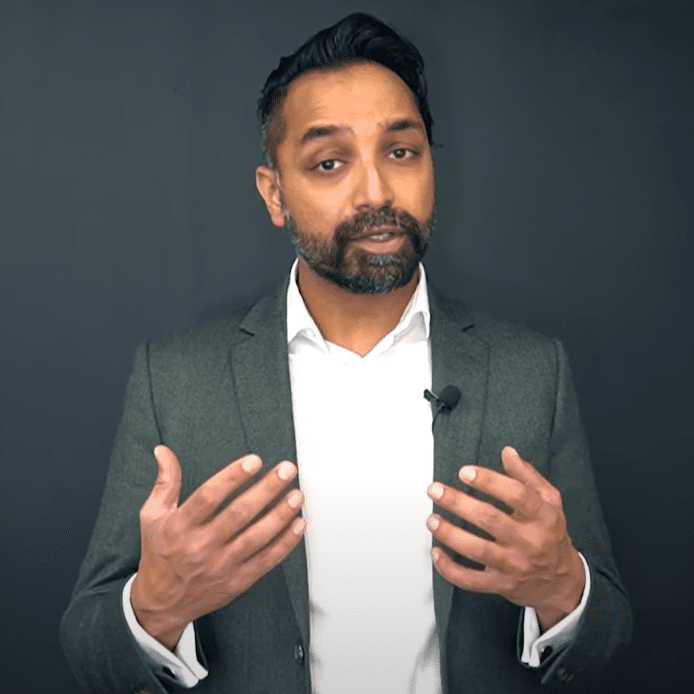Event summary
In this discussion, we asked: What role can AI play in diplomatic negotiation and conflict resolution?
Three speakers joined us to address this question: Sanna Harty (Deputy Head, Mediation Support Team, European External Action Service (EEAS)), Daanish Masood Alavi (Innovation Cell, UN Department of Political Affairs (UNDPPA)), and Dr Anita Lamprecht (International lawyer; Digital Watch Knowledge Fellow, Diplo). They shared their experiences in the field and gave concrete examples of AI applications. They also added broader reflections, ways of usefully framing the debate, and avenues for future research and application.
Harty stressed that while focusing on the risks of AI, such as disinformation, is important, the opportunities of harnessing AI for peace need to be treated as equally important. The EU is making significant efforts to identify the benefits of AI, including AI for peace. She highlighted three areas of application of AI tools:
- Creating greater inclusivity in peace processes
- Improving conflict analysis through better use of conflict data
- Improving the understanding of relevant conflict narratives (mainly through social media)
A concrete example from the Mediation Support Team revolved around digital dialogue in real time through nation-wide online polling as part of a political dialogue process in Lybia (2020–2021). She argued that three additional, broader points are important to keep in mind.
First, AI is a tool that is developed, managed, and interpreted by humans. The tool is only as good as the work that went into creating it and working with it. Second, trust is a crucial ingredient in any negotiation and mediation process, and it needs to be carefully built and maintained, especially when AI comes into play. Third, people around the world experience the digital era very differently and have different levels of access and different concerns. This needs to be taken into account and respected.
Masood explained that the Innovation Cell of the UNDPPA was founded in 2019 to explore emerging technologies and related research, and re-purpose them for peace processes.
A key focus in the area of AI is on collective response or collective dialogue systems. They allow for understanding, in real time, what a representative sample of the population thinks and feels about specific aspects of a conflict and its resolution.
Given the work of the unit and the focus of the UN Security Council mandates in the Arabic region (such as Yemen, Iraq, and Libya), the unit initially developed corpora in various Arabic dialects. In Yemen, for example, the Innovation Cell conducted a large-scale dialogue on the political process, the effects of the pandemic, and humanitarian issues. Engagement of civil society organisations on the ground was key to raising awareness about the dialogue and building trust. The use of such collective response or collective dialogue systems has four distinct advantages:
- Senior UN mediation personnel can be involved directly in the conversation and the UN can be seen to connect the people affected by the conflict.
- Empirical data can be gathered that can feed into the high-level negotiation process.
- Participants from across the conflict context can be reached, and the representation of their views in the high-level negotiation process ensured.
- Chances for peace can be maximised, while the impact of spoilers can be minimised.
Overall, the aim of such collective response and dialogue systems is to create thoughtful deliberations and common ground within a global communication environment that, largely due to social media, has a tendency to emphasise divisions.
Lampecht outlined three key trends:
First, it used to be a common occurrence to first develop AI tools and then search for specific applications for these tools. This has shifted to an approach that starts from the problem to be solved and then looks toward identifying or building appropriate AI tools. Speakers agreed that this user-centric approach marked an important shift in exploring AI tools.
Second, there is a notable shift from applying AI tools to individual tasks to applying them to the entire dispute resolution system. For example, AI can help find suitable experts, provide sophisticated ways of weighing different interests, and provide appropriate knowledge support.
Third, ideas around creating so-called digital twins could be helpful for the future of conflict resolution. Digital twins are digital representations of material or immaterial objects. A digital twin of Earth could, for example, support climate change negotiations, Digital twins and the associated simulations offer an opportunity to learn from the past, understand the present, and predict the future.
Reacting to the key points from the speakers, Jovan Kurbalija (Executive Director, Diplo) argued that a key challenge is the preservation of existing knowledge and ensuring that it is publicly and freely available as a global public good. This is an important task for multilateral organisations such as the UN and the EU to avoid the privatisation of knowledge related to conflict resolution and beyond.
Join us for WebDebate #58 - How to Train Diplomats to Deal With AI and Data? on Tuesday, 4 April, at 13:00 UTC (15:00 CET). Read more.
Event recording

Event description
Negotiations are one of the central tenants of diplomacy. Some describe diplomacy as the management of international relations by selected officials via negotiation.
Given the recent hype around AI tools related to language processing and language generation, we need to ask: What role can AI play in diplomatic negotiations?
Tuesday, 7th March,
14:00 UTC (09:00 EDT | 15:00 CET | 19:30 IST)
Negotiations are, without a doubt, at the core of diplomacy. Diplomatic negotiations prevent wars, signal the end of a war, and build peace. They are the foundation of every international organisation and every international treaty. In a globalised world, diplomatic negotiations make the world go round.
Given the stakes of this task, any tool that might support the process deserves our attention. We have seen various explorations of this question in the context of peaceful conflict resolution. We have also seen concrete pilot projects by organisations like the Innovation Cell at the UNDPPA. With the recent hype and innovation around AI tools, not least ChatGPT, it is time to come back to these questions with renewed vigour.
What is the (potential) role of AI in diplomatic negotiations? What AI tools have already been explored, and what additional tools and needs can we anticipate? What are elements of negotiations that could be augmented what are elements that could be automated?
Join diplomats, academics, and AI experts for an informed discussion on the current level of technology and future trends.
Tuesday, 7th March,
14:00 UTC (09:00 EDT | 15:00 CET | 19:30 IST)
About our WebDebates
Our WebDebates on the future of diplomacy are live-streamed on the first Tuesday of every month. They are organised by Diplo within the framework of the International Forum on Diplomatic Training (IFDT). Learn more about our WebDebates series.






